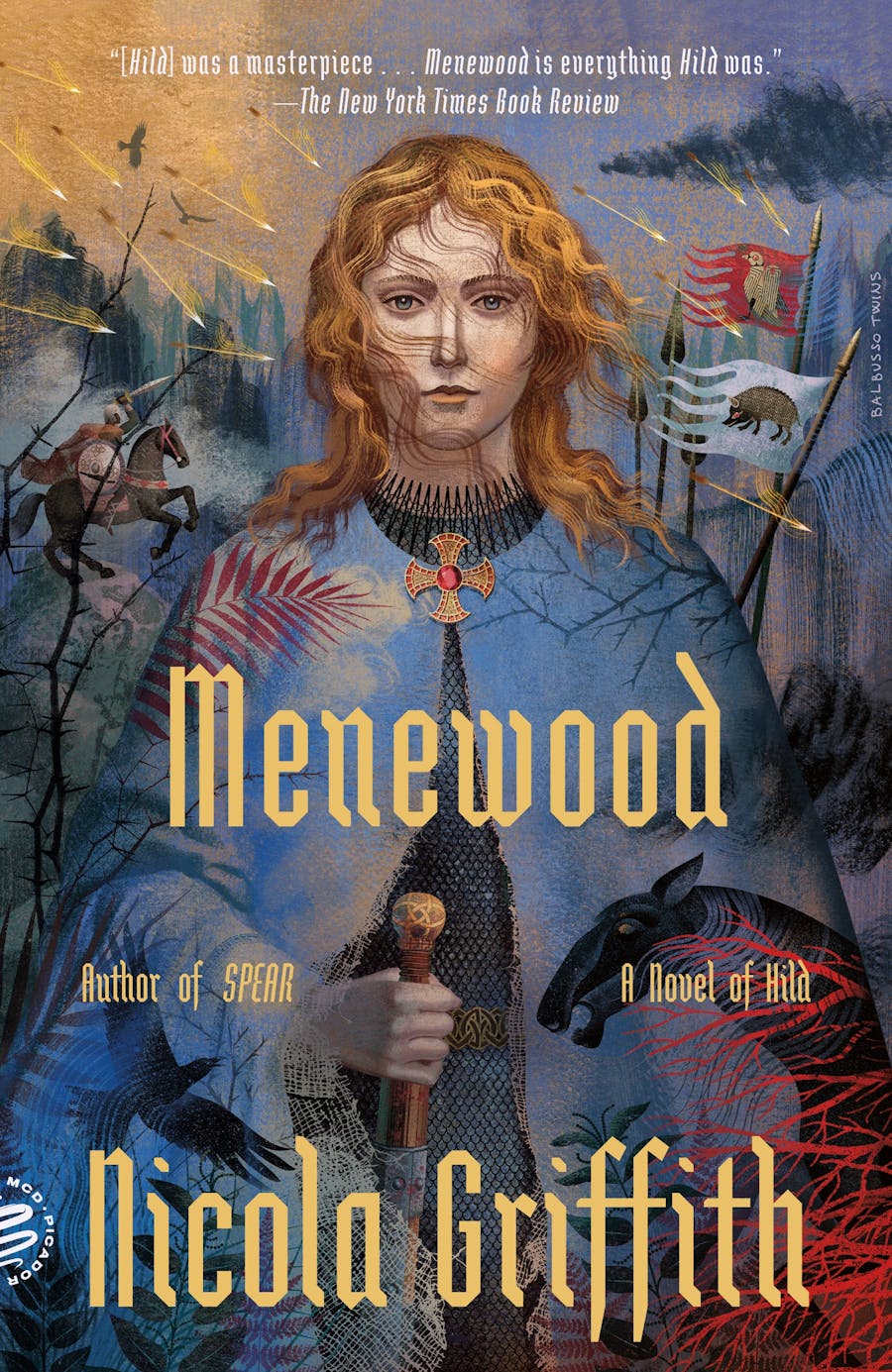 I have been waiting to read Nicola Griffith’s Menewood since I finished Hild not long after it first came out in 2013. I grabbed Menewood as soon as my bookstore got it in this month and I read all 700+ pages (including notes) over about five days despite a long things-to-do list.
I have been waiting to read Nicola Griffith’s Menewood since I finished Hild not long after it first came out in 2013. I grabbed Menewood as soon as my bookstore got it in this month and I read all 700+ pages (including notes) over about five days despite a long things-to-do list.
It was worth the wait. Not only that, reading it makes it clear that writing a book that is so deep and complex takes time. I’m not at all sure it could have been written any faster. It’s a sequel, and for that reason it works best if you read Hild first, but it isn’t like so many book series where each one is constructed in the same pattern.
The two books are historical fiction based on the very real St. Hilda of Whitby. Griffith has written a woman — and in fact, a number of women — with agency while still writing a book that is very much embedded in its times.
This is a book set in 7th century England which shows all the ways that women of that time mattered.
Two things in particular struck me while reading: the writing and some undercurrents about power.
First the writing. I should say that I read every sentence, every word — no rushing over paragraphs of description to get to the action as I am wont to do, especially when reading historical fiction or big fat fantasy. This book repays that kind of attention, because there is something important in all those words, something that advances the story.
Griffith wrote an essay recently on writing immersive historical fiction that makes clear how she approached this book. In that essay, she says:
As a writer, I bring the reader into my fictional world through the characters’ physical, embodied experience. What a character feels, what they notice of their world—and how they feel about it—tells the reader a vast amount, and it creates empathy.
She does exactly that. Pleasure, daily chores, injury, hard labor, death — all are vivid in this book.
But that physicality is woven in with the politics, the wars, and the work of making sure everyone was clothed and fed and housed in a time long before the industrial tools that made some of that labor easy.
And all of that is woven into what is known of the history, so that even though this is a fictional story, it does not swear at the things we know of the past.
Weaving is a good metaphor for this, because weaving is one of the necessary jobs, usually done by women, in these times. But the weaving to put together this book is not the simple sort that puts together a basic piece of cloth from nettles or flax or wool.
This book is not one color and one pattern or even one kind of thread, but multiples of all. The author has to know the actual history and the actual geography (including weather as well as hills, forests, wetlands, rivers) as well as knowing her characters and how they feel and think and hurt and love.
As a reader, you can see all this come together on the sentence level. This is a long book in which every sentence matters, because every sentence is part of the overall weave.
As a writer, I am in awe. As a reader, I am fulfilled.
And I am fulfilled by more than the beautiful writing and the intense story. This book has left me thinking deeply about power.
The wars among the various kings — people we would call warlords today, given the size of their realms — shape the lives of everyone else, but rarely in a constructive way. Some are just typical power struggles, while others are more vicious, the kind of killing orgies that are unfortunately still known to us today.
The kings all want power, and they hold it until someone comes along who can take it from them. They surround themselves with gesiths, warriors whose primary purpose is to win glory in battle, whether they live or die.
Hild, too, is a warrior. From childhood, she developed the skill of careful observation and became an advisor to her uncle the king because she could see what was likely to happen, not because of magic – though it seemed like magic to others – but because she was paying attention.
She learned to fight as well – she is a warrior, in fact a commander, of great skill. But her purpose in all these things is not the glory of war, but survival, at first for herself, and later for her people.
Her approach to war is the same as her approach to healing or to managing the land or the skilled people around her.
The kings are playing war games; Hild is protecting her people. She protects them with diplomacy as well as battle, and she does even more with making sure there are sufficient resources and places where they can be safe.
This, to me, is what it means to be a leader.
The story is fiction, but it would not surprise me to find that there were people like Hild in 7th century Britain, people who took responsibility for their people instead of exploiting them for personal gain.
We could use more leaders like that in the world today.
